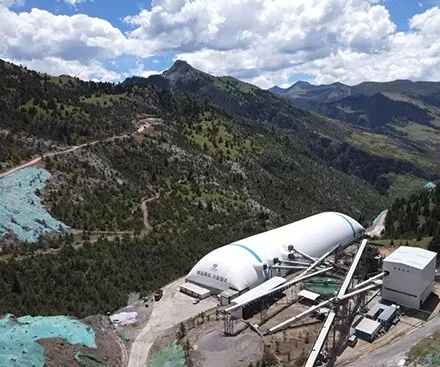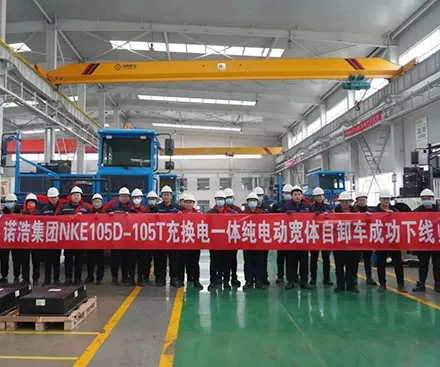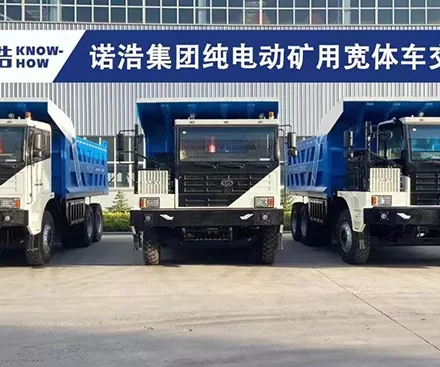High capacity in carrying loads
Versatility in different applications
Ease of operation
Reduced operating costs
Options for different sizes
Low maintenance
Heavy equipment use has a multitude of advantages on a site. Without it, workers need to risk their bodies in completing dangerous tasks and projects will take much longer. Aside from crushers and cranes, wheel loaders also have benefits in many applications. Read on to learn more!
In industries such as construction, mining, and quarrying, the wheel loader is an essential and dependable piece of equipment that significantly increases efficiency. This powerful machine is capable of lifting objects from one location and transporting them to a designated area, making it indispensable for various tasks. Its primary function is to scoop soil and other ground materials during earthmoving operations.
The wheel loader is equipped with a bucket, which can be located at the front or back of the vehicle, depending on the specific model. This versatile bucket can be raised or lowered as needed to facilitate the carrying and dumping of materials. Wheel loaders typically have high capacities, although the exact capacity may vary among different classes of machines.
Aside from earthmoving purposes, wheel loaders are versatile equipment that can be used in different applications. With the option for different attachments, you can change the default bucket into blades, augers, backhoes, hammers, and rakes being some of the choices.
Depending on your attachment of choice, wheel loaders can also be used to lift trash, carry pipes, compact gravel, move hay bales, drill holes, and hammer stones. Because of these, it becomes a multi-use and all-in-one machinery. After all, there are more tasks to finish than moving earth. This will allow operators to use a wheel loader in more construction applications and industries such as agriculture and recycling.
A wheel loader is easier to operate compared to an excavator, thanks to its increased mobility and easier use of attachments. It also requires less time for training, as there is no need for an auxiliary line.
In addition to these advantages, a wheel loader can also be maneuvered on slopes and operated with its bucket, making it a more flexible option. It is important, however, to ensure that staff is properly trained and that safety protocols are always followed.
A wheel loader requires less training costs and is easier to operate compared to other machinery. It significantly speeds up tasks on a job site, reducing the need for manual labor to carry heavy loads. As a result, projects are completed faster, saving on both time and human resource expenses.
In addition, a wheel loader is made from lighter materials, making it more cost-effective to manufacture. Consequently, it is sold at a more affordable price. Furthermore, the ability to change attachments reduces operating costs as there is no need to purchase separate equipment.
Not all projects are the same. Some companies might require wheel loaders for limited spaces while others look for more horsepower to lift substantial weights. This is why this piece of machinery is available in different sizes and capacities.
Generally, a wheel loader is available in different classes. It can be classified into compact, small, medium, and large. The lighter ones have the advantage of mobility and maneuverability in small spaces while the bigger models can handle heavier industrial loads. Ask your supplier for assistance in choosing the most suitable equipment for your project.
Because of the advancements in technology, newer wheel loaders now reduce human error and last longer. It also has a slower depreciating time compared to an excavator. Depending on the size of your wheel loader, the maintenance procedures may differ.
Training an operator on safety protocols and maintenance procedures at the beginning will also help. If an inspection is done every before and after use, it can help prevent problems. A simple checklist is all that is needed to make this activity a habit. Some owners forget this, making repairs much more expensive in the long run.
Wheel loader benefits include high carrying capacity, versatility in different applications, ease of operation, reduced operating costs, options for different sizes, and low maintenance.
It is high-performing equipment capable of faster completion of tasks in a job site due to its capacity and versatility. Its operation is very straightforward, requiring less training than other machinery. If you decide to invest in one, look for specifications that will fit your requirements in a project. With the proper maintenance, a wheel loader can last a very long time.

Jul. 23, 2022
View More
Jun. 15, 2022
View More
Jun. 01, 2022
View More